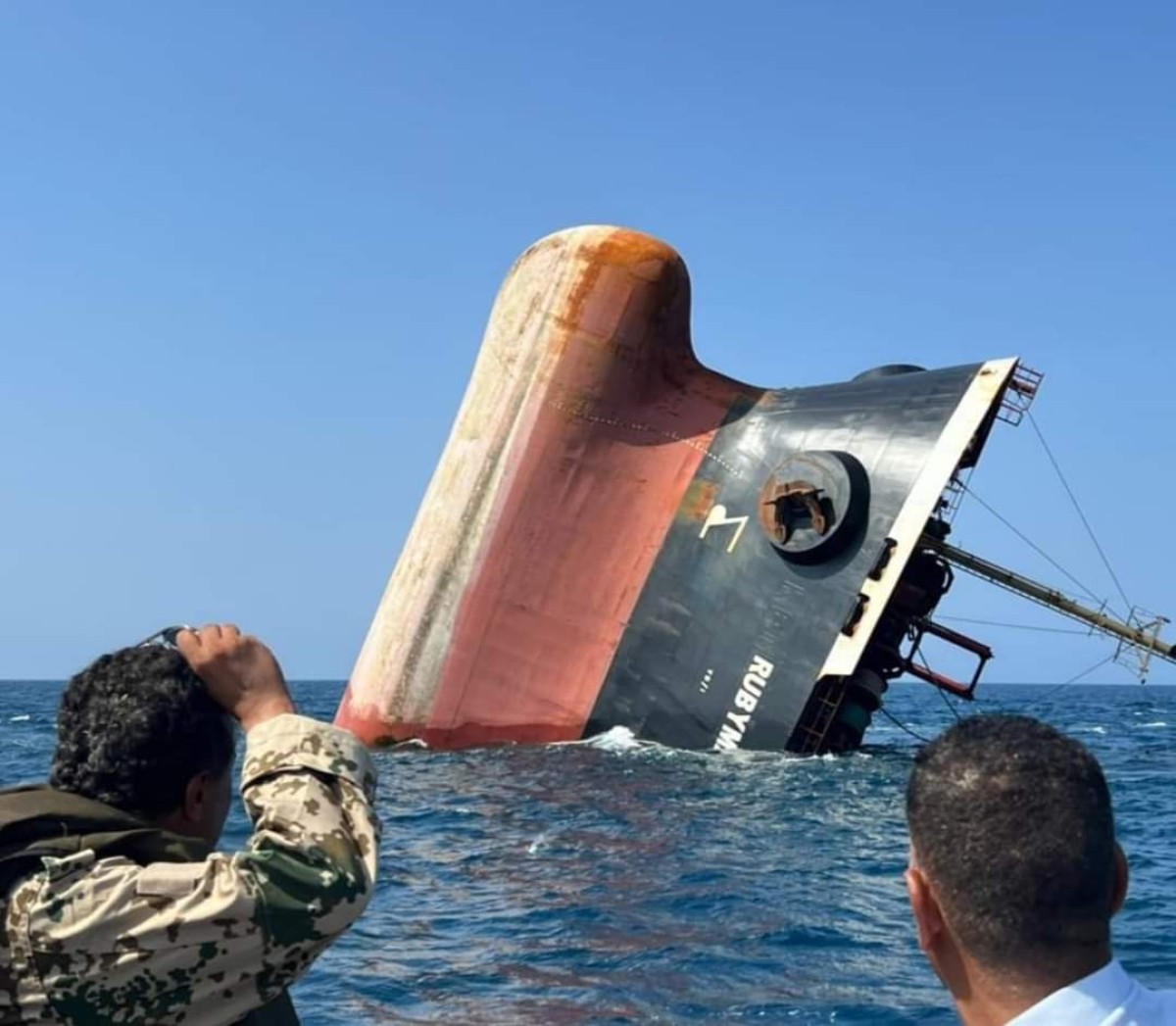Regional organization: The Red Sea needs more than 30 years to recover from the sinking of the “Robimar” ship.


The ship "Rubimar" carries more than 21,000 metric tons of ammonium phosphate fertilizer and fuel on board, which is equivalent to 200 tons of oil.
The International Development Organization in East Africa (IGAD) confirmed that the Red Sea environment will need more than 30 years to recover from the dire consequences resulting from the leakage of fuel and fertilizer that was on board the ship “Rubimar”, which was targeted by the Houthi group on February 18.< /p>
IGAD expressed, in a statement, its deep concern about the environmental catastrophe looming in the Red Sea and the Gulf of Aden, due to the sinking of the ship “Rubimar” off the coast of Yemen.
The organization, which is a regional economic group working on development among the countries of East Africa, and whose permanent headquarters are in Djibouti, said that the ship “Rubimar” carries more than 21,000 metric tons of ammonium phosphate fertilizer and fuel on board, and this is equivalent to 200 tons of oil.
She noted that the fuel spill would destroy marine life, destroy coral reefs and marine life, “endanger hundreds of thousands of jobs in the fishing industry, in addition to cutting off food and fuel supplies to coastal countries.”
She added, "The Red Sea environment will need more than 30 years to recover from the severe consequences resulting from the fuel leak."
The organization, which was founded in 1996, warned of “the disruption of one of the busiest maritime shipping lanes, affecting the smooth movement of goods and services through the Red Sea waterway.”
The organization called on “all concerned parties to invest in peaceful options to address the looming environmental catastrophe in the Red Sea and Gulf of Aden.”
IGAD stated that it continues to consider formulating its joint position and regional action plan towards this disaster with the aim of ensuring maritime safety and freedom of navigation in the Red Sea and the Gulf of Aden..